
views
Gaining Experience

Cultivate the mind of a beginner. Do you remember the first time you saw dinosaur bones at the museum? Or the first time you ate a really good peach? Your world expanded at that moment by a fraction and you became a little wiser. The Buddhist concept of "beginner's mind" refers to the approach of a person just starting out, filled with the wonder of new learning, and being challenged anew by it. Always keep a curious and open mind. Rather than prejudging situations, learn to keep your mind open and tell yourself "I don't know what to expect," which will allow you to learn and gain wisdom. When you cease to have a fixed idea of people, things, and situations surrounding you, you grow in wisdom by soaking up changes, new ideas, and don't set any person above or beneath you.
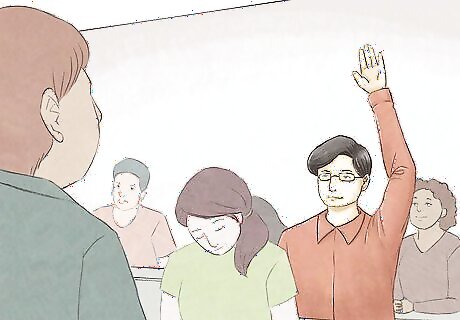
Ask lots of questions. Learning doesn't stop just because you might have graduated from high school or college, or that you've got kids and have lots of experience you'd like to teach them. Even if you're a teacher at the highest level or an expert in your field, you're not done learning. A wise person questions their motivations, questions widely accepted knowledge, and learns to love asking questions in moments of ignorance, because a wise person knows when it is time to learn. Anais Nin neatly summed up this need to continue learning: "Life is a process of becoming, a combination of states we have to go through. Where people fail is that they wish to elect a state and remain in it. This is a kind of death." When you share knowledge, you also learn better since you recognize your own understanding and how you may organize the information better.

Slow down. Be still at least once a day, to allow yourself time to rest and to stop taking in the rush of the world. Being constantly busy and worrying incessantly about being seen as inadequate may make you a paragon of workplace virtue but it does not make you wise. Stop. Stand still. Take in what the unhurried perspective brings to you. Fill your time with contemplation. Fill your free time with learning rather than distractions. If you find yourself filling downtime with television or video games, try to substitute an hour of television with 1 hour of reading or choose instead to watch a nature documentary you've been meaning to watch. Better yet, go outside and go for a hike in the woods.

Think first and talk second. It's not always important to voice your opinion in a group or to contribute something just because you can. Wise people don't always need to prove their knowledge. If your opinion is necessary, give it. An old adage goes, "The best samurai lets the sword rust in its scabbard." This isn't to say you should withdraw socially or never speak. Rather, be receptive to others and be a good listener. Don't just wait for your turn to speak because you think you're wiser than everyone else in the room. That's not wisdom, that's egotism.
Imitating Wisdom

Learn from mentors. Find people whom you respect and who emulate the values and ideals that represent wisdom. Look for people doing the things you find interesting and of importance. Ask those people questions. Listen with great care to what they have to say, for you will learn much from their experience and reflection. When in doubt, ask your mentors for advice and guidance; while you don't necessarily have to agree with what they have to say, it will certainly give you food for thought. Mentors don't have to be successful people or people you want to "be like." The wisest person you know might be a bartender, not a professor of mathematics. Learn to recognize the wisdom in everyone.

Read everything. Read the writings of philosophers and social commentators. Read comics. Read Lee Child adventure novels. Read online or on mobile devices. Get a library card. Read contemporary Irish poetry. Read Melville. Read as if your life depended on it and form opinions about the things you read and talk with others about what you've read. Read especially about your particular fields of interest, whether it be your job or your hobby. Read about other people's experiences and learn how others before you have dealt with situations that you're likely to face.

Share with your mentors. It's a mistake to think that the wise are above it all. Never troubled by their emotions, wise people float above the rest of us in an unfeeling bubble of their own making. Not true. When you're feeling frustrated or disappointed in something, it's natural to want to discuss it with someone who will understand. Surround yourself with willing and receptive wise people who'll give you a sounding board. Be open with them and they'll be open with you.
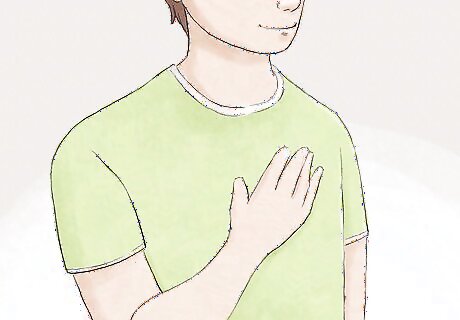
Practice humility. Is it wise to sell yourself? The business and marketing world has convinced us self-promotion is a necessity, because we've managed to turn ourselves into commodities in need of a good sales pitch, and business language frequently reflects this. However, there is a huge difference between acknowledging to yourself and others that you are good at doing something and exaggerating a range of skill sets beyond your comfort zone just to keep up with the competition. Being humble is not about abdicating your self-worth; rather, it's about being realistic and only emphasizing all that is good and capable within you. In turn, people will know that they can depend on your reliability for those traits. Being humble is wise because it allows the real you to shine through. Humility also ensures that you respect the abilities of others rather than fearing them; the wisdom of accepting your own limitations and connecting with other people's strengths to bolster yours is infinite.

Be there for others. Wise people don't have to live in caves, growing wizard beards in their hermitage. Exchange wisdom with others to help guide them. As a mentor and teacher yourself, you can help other people learn about critical thinking, embracing feelings, loving lifelong learning, and trusting themselves. Avoid the temptation to use learning as a barrier against others. Knowledge is for sharing not hoarding, and wisdom will only grow when exposed to everyone else's ideas no matter how confronting they may be.
Reflecting
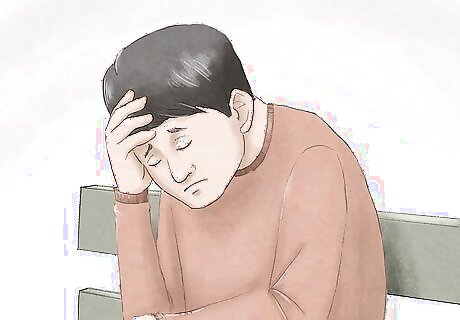
Learn to recognize your faults. The hardest journey is often the one that requires looking inside yourself and being honest about what you find. try to work out what beliefs, opinions, and biases you harbor. Unless you're willing to know yourself well and learn to love both the strengths and weaknesses within you, it is difficult to be wise. Knowing yourself provides the space in which you can grow and forgive yourself as you journey through life. Be wary of any self-improvement advice that claims to have "secrets". The only "secret" to self-improvement is that it requires hard work and constancy. Beyond that, you can fiddle at the edges (attested to remarkably by the massive success of the self-help industry) but you cannot change the reality of having to do the work of personal introspection and reflection on the world yourself.
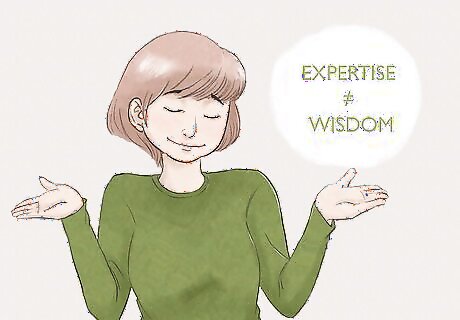
Accept that you can't know everything. The wisest of people have long been those who realize they actually know very little, often in spite of decades of learning and reflecting. The more you think about people, things, and events, the more it becomes clear that there is always more to know and that what you do know is but a pinhead amid all knowledge. Acceptance of the limitations of your own knowledge is a key to wisdom. Don't confuse expertise with wisdom. Expertise refers to a high level of knowledge in a distinct field, whereas wisdom refers to the broader notion seeing the big picture of that knowledge, and to live calmly reassured of your decisions and actions in light of your knowledge.

Be responsible for yourself. Only you can know who you are and only you can be responsible for your ultimate choices. If you've spent years doing what was right according to someone else's standards rather than your own, you're not being responsible for yourself. Change the job where nobody recognizes your talents and find one where people will discover the tiger within. Move somewhere you're comfortable. Find a way to earn a living that doesn't compromise your compassion, care, and interests. Self-responsibility, including learning to accept the consequences of making your own decisions, increases wisdom.
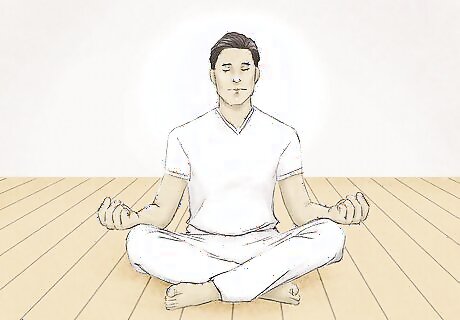
Uncomplicate your life. For many people, a sense of meaning in life is "created" from being overly busy and by complicating everything from work to love. Complexity can make a person feel important and wanted but it is not wisdom. Rather, it's a form of distraction from oneself and from dealing with issues in life that really do matter, like questioning what your purpose is and what life is all about. Complication rules out reflection and leaves you vulnerable to the mysticism of expertise, causing you to make things harder than they need to be. Keep it simple and wisdom will flourish. As you grow wiser in a topic, it should become more simple for you to understand. If something still seems complex to you, you may not understand the basic building blocks of the subject.











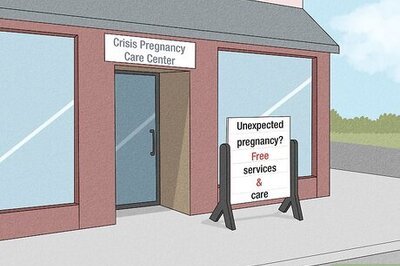
Comments
0 comment